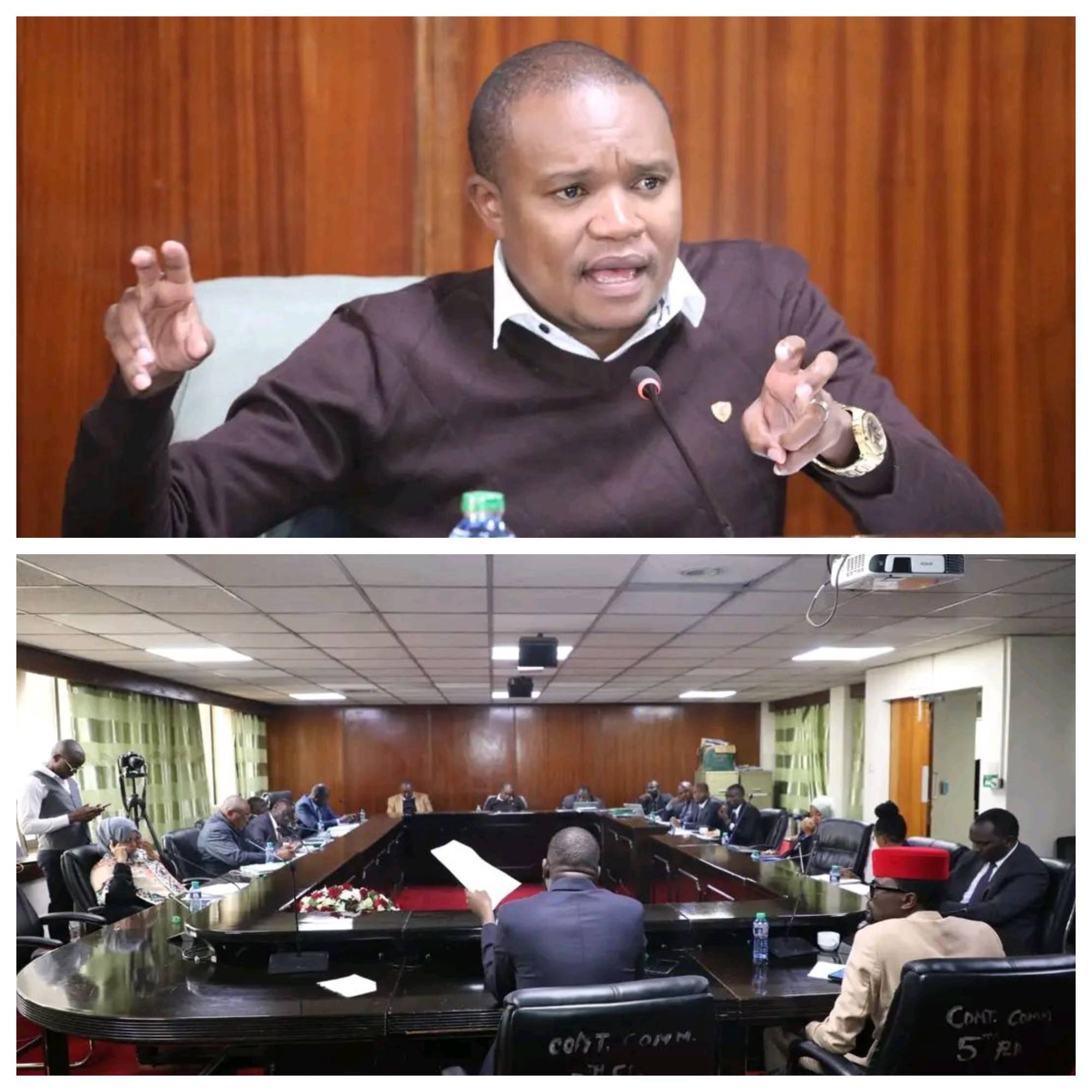𝐅𝐈𝐍𝐀𝐍𝐂𝐄 𝐂𝐎𝐌𝐌𝐈𝐓𝐓𝐄𝐄 𝐌𝐄𝐄𝐓𝐒 𝐌𝐄𝐌𝐁𝐄𝐑𝐒 𝐒𝐏𝐎𝐍𝐒𝐎𝐑𝐈𝐍𝐆 𝐋𝐄𝐆𝐈𝐒𝐋𝐀𝐓𝐈𝐕𝐄 𝐏𝐑𝐎𝐏𝐎𝐒𝐀𝐋𝐒
The Departmental Committee on Finance and National Planning chaired by Hon. Kuria Kimani (Molo) held a meeting with two Members of Parliament who have sponsored two of the nine legislative proposals currently under consideration by the Committee.
First to appear before the Committee was Hon. Yusuf Farah (Wajir West) who is proposing to amend the Banking Act to empower the Central Bank of Kenya (CBK) to make a regulatory framework for Islamic Banking.
Hon. Farah argues that having a regulatory framework is necessary based on the fact that international banks offering Islamic products are keen on breaking into the financial market in Kenya to exploit the full potential of Islamic Banking.
He presented a strong case on the need to stop discrimination on Muslims with regard to access to credit because of their faith. Hon. Farah added that the current conventional bank regulations are not Sharia compliant and thus have shut off Muslims from accessing credit alongside other Kenyans.
“ Hon.Chairman, Muslims have a right to access credit just like other Kenyans. However, the current banking regulations are not Sharia Compliant. The Islamic faith does not permit faithfuls to access credit where interest is payable”, Hon. Farah noted.
Committee Members led by the Chairperson, Hon. Kuria Kimani however told the legislator that enacting such a law could potentially open a pandora’s box whereby sections of the society and people of various faiths may seek to also institute provisions that favour their beliefs.
Members further raised concerns that the only two banks regulated under Sharia Law had remained non-performing with one struggling financially, and the other already put under receivership.
In addition, Members argued that it would be unfair to allow the adoption of such a provision that only favours one religion. They wondered how the law would ensure that only Islamic faithfuls access this privilege without making it discriminatory.
The second Member to appear before the Committee was Hon. Didmus Barasa (Kimilili) who defended his proposed amendment to the Commission on Revenue Allocation Act. He is proposing to amend the Act to provide that the Chairperson and Members of the Commission serve on a part-time basis.
The Bill also proposes that the Commission be hosted at the Controller of Budget Offices and that the maximum number of meetings that the Commission can hold in a year be capped at fifteen.
Hon. Barasa told the Committee that in the wake of the runaway wage bill, public funds would be saved if the Commissioners were engaged on a part-time basis. This is in consideration that the Commission’s mandate as per the Constitution is to make recommendations on the revenue share formula to the Senate.
“The Commissioners do not need to sit from Monday to Friday, January to December while they only make recommendations to the Senateonce a year. Faced with high cost of living and with the government employing austerity measures, we need to have the Commission operating part time”, he said.
Members however observed that the proposal to have one Constitutional Commission operate on part-time basis while the others are serving on full-time basis was discriminatory. They told Hon. Barasa that there is need for him to justify why he has elected to have only two Commissions committed to part-time engagement. Hon. Barasa had also proposed that the Salaries and Remuneration Commission (SRC) operate on a part time basis.
















